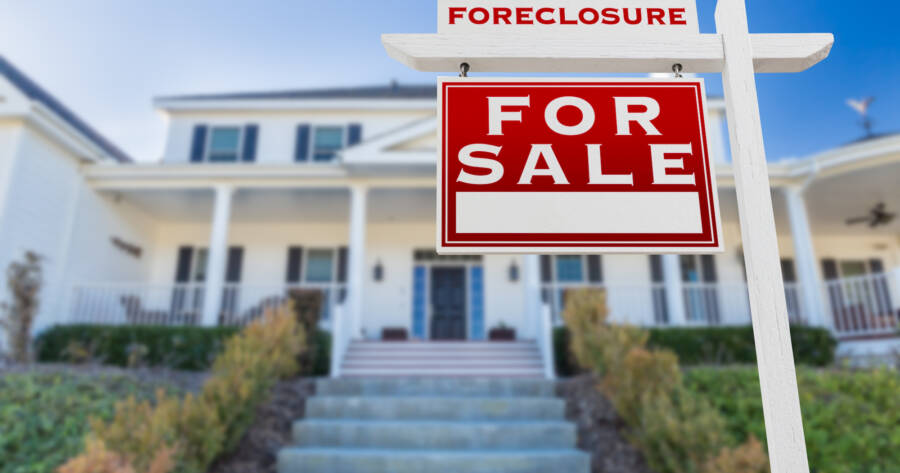Foreclosed homes offer a budget-friendly path to homeownership, with potential for significant ROI, but also come with some cons. While the thought of buying a foreclosed home might seem daunting, understanding this market can lead to lucrative outcomes.
Understanding Foreclosures
A foreclosure occurs when a homeowner fails to make mortgage payments, prompting the lender to reclaim the property. This process often leads to a public auction, where the home is sold to the highest bidder. In many cases, foreclosures can also be sold directly through real estate agents, providing buyers with multiple avenues to purchase these properties.
Foreclosed homes can be categorized into three main stages: pre-foreclosure, auction, and bank-owned (REO). Pre-foreclosure offers a unique chance to negotiate directly with the homeowner, often at a lower price. At auction, the property is sold to the highest bidder, sometimes below market value. Bank-owned properties, while already repossessed, may require more extensive renovations but can still offer significant savings.
Unlocking Savings with Foreclosed Properties
Foreclosed homes present a unique opportunity for homebuyers to unlock huge savings. When a homeowner fails to make mortgage payments, the lender takes possession of the property through foreclosure. These properties are then sold at a discounted price, often below market value.1
This means that buyers can purchase a home at a significantly lower price compared to traditional real estate transactions. For those looking to save money and get more bang for their buck, investing in foreclosed homes is a smart choice.
Maximizing ROI through Foreclosed Home Investment
Investing in foreclosed homes can also be a lucrative venture, offering the potential for significant return on investment (ROI). When purchasing a foreclosed property at a discounted price, buyers have the opportunity to make improvements and increase its value.
By renovating the property or making strategic upgrades, investors can maximize their ROI when they decide to sell or rent out the home.2 Additionally, in areas where the real estate market is thriving, the value of foreclosed homes can appreciate rapidly, further increasing the potential for profit and growth.
The Process of Buying a Foreclosed Home
While buying a foreclosed home can offer immense savings, it’s crucial to understand the purchasing process. Start by researching the local real estate market and identifying potential properties. Many online platforms list foreclosed homes, allowing you to filter by location, price, and other criteria.
Once you identify a property of interest, it’s essential to conduct a thorough inspection. Foreclosed homes may have been neglected or may require significant repairs. Hire a professional inspector to evaluate the property’s condition, including plumbing, electrical systems, and structural integrity. This information is vital for estimating renovation costs and determining whether the investment is worthwhile.
Next, it’s important to secure financing. Many banks and lenders offer loans specifically for purchasing foreclosures, often with favorable terms. Consider working with a real estate agent who specializes in foreclosures, as they can provide valuable insights and guide you through the negotiation process.
Financing Your Foreclosure Purchase
Financing is a critical aspect of purchasing a foreclosed home. Traditional mortgage loans may not always be available for foreclosures, particularly for properties in disrepair. However, there are alternative financing options to explore. FHA 203(k) loans, for instance, allow buyers to finance both the purchase price and renovation costs into a single mortgage.
Another option is to seek funding from hard money lenders, who specialize in loans for real estate investors. These loans typically have higher interest rates but can provide quicker access to cash, making them ideal for those looking to flip properties.
Understanding your budget and securing pre-approval for financing can strengthen your position when making an offer. This can demonstrate to sellers that you are a serious buyer, potentially giving you an edge in competitive situations.
Renovation and Resale Potential
Renovating a foreclosed home can be a rewarding venture, increasing its value and appeal to potential buyers or renters. When planning renovations, focus on high-impact areas such as kitchens and bathrooms, which can yield the best returns. A fresh coat of paint, updated fixtures, and landscaping improvements can also significantly enhance curb appeal.
Before beginning any renovation, create a detailed budget and timeline to ensure the project stays on track. It’s important to balance the cost of renovations with the potential resale value of the home. Consulting with a real estate agent can provide insights into market trends and help you determine which upgrades will yield the highest return on investment.
Once the renovations are complete, consider your exit strategy. Whether you choose to sell the property for a profit or rent it out for ongoing income, having a clear plan will guide your decisions and maximize your returns.
Learn More Today
Purchasing foreclosed homes can be an excellent way to achieve massive savings and potential profits in the real estate market. With properties often available at significantly reduced prices, buyers have the opportunity to invest in their futures without the burden of overwhelming costs.
While the process of buying and renovating a foreclosure may present challenges, the rewards can be substantial. In a landscape where affordable housing is increasingly scarce, seizing the opportunity to invest in foreclosures not only benefits individual buyers but also contributes to the overall health of the housing market.
